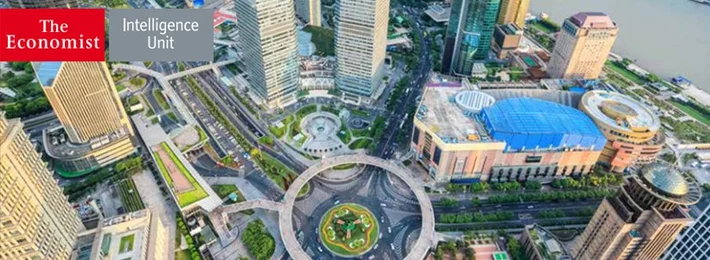The Role Of Security In The Macroeconomy
02.07.2015 Terry Gaul

A recent report released by the Economist Intelligence Unit entitled Long-term Macroeconomic Forecasts: Key trends to 2050 highlighted some of the emerging economic issues expected to shape global business in the coming decades. Some of the key findings of interest were:
- China is anticipated to overtake the United States in 2026 in nominal Gross Domestic Product (GDP) and maintain its position as the largest economy by 2050 while India will likely move to third place with the US in second.
- By 2050 Asia is predicted to account for 53% of global GDP.
- Climate change, international security and global economic governance are key issues that will be addressed by the leading economies.
Also noteworthy was the projection that “economic growth will be driven by countries moving from less technologically intensive production to capital-intensive manufacturing production.” For more advanced economies, the report went on to predict that “gains from the more efficient usage of capital through increased technological progress as a result of investment in research and development (R&D) will boost growth.”
Undoubtedly, much of this technology investment and growth will be fueled by the Internet of Things and the efficiencies to be gained by the networking of machines, people and business in the so- called smart factory or Industry 4.0. In his article, Internet of Things – Security is a prerequisite for success, in the May 2015 issue of The Vault, Dr. Stefan Hofschen, Infineon Technologies AG, wrote:
“Especially in the context of Industry 4.0 and the automotive industry, the increasing connectivity provides a great number of opportunities for the economy. Yet, it also presents great challenges for businesses, foremost in questions of data security. How can business secrets and intellectual property be protected on the open Internet? How is data protection and confidentiality ensured? How secure is the communication between the different devices or components? And how can attacks be recognized and potential damage prevented? In short, data security and system integrity are essential for the success of new business models, because they protect the availability and reliability of products and services.”
And while many divergent issues will impact the macroeconomy of the future as reported by the EIU, cybersecurity, or the lack thereof, will undeniably be a key factor as the financial damages caused by security breaches can far exceed the upfront technology investments. For example, manipulation of the firmware during an update of a single production machine can cause damage to the entire production process.
Well planned and technologically superior security measures are vital to provide protection against manipulation and tampering of connected machines and devices, loss of Intellectual property and know-how, and theft of proprietary business or personal data. Fortunately, companies like Wibu-Systems have developed cryptographic technologies and other modern security mechanisms to protect the integrity of these smart systems and prevent such malicious activities.
At the IT Summit 2014 in Hamburg Germany, Infineon, Deutsche Telekom, Fraunhofer SIT, TRUMPF, Wibu-Systems and Hirschmann demonstrated such a security solution for an industrial manufacturing process. I invite you to read more about the technology solution and how it was implemented and visit our new website to learn more about all of our proven security solutions for PC applications and embedded systems.
Contributor

Terry Gaul
Vice President Sales USA
Terry Gaul is a sales and business development professional with extensive experience in the software and technology sectors. He has been involved with software protection and licensing technologies for more than 20 years and currently serves as Vice President of Sales at Wibu-Systems USA. When he is not helping customers with software licensing, Terry typically can be found coaching his daughters' soccer teams or camping with his family on the Maine coast.








